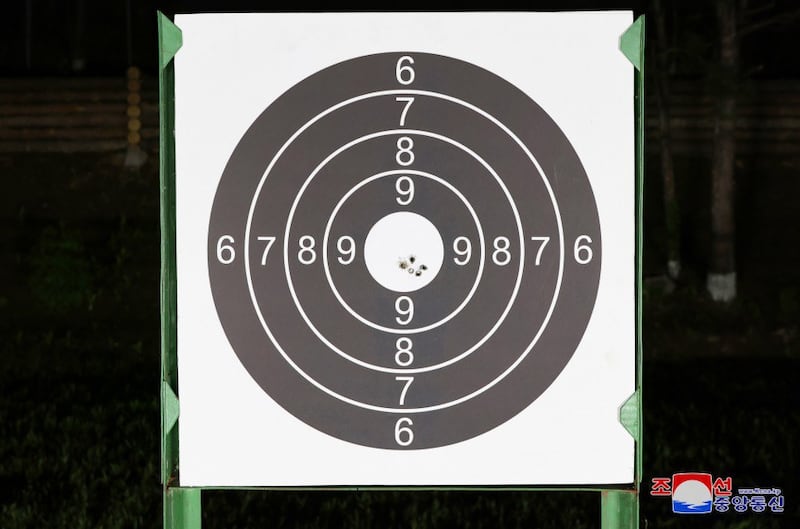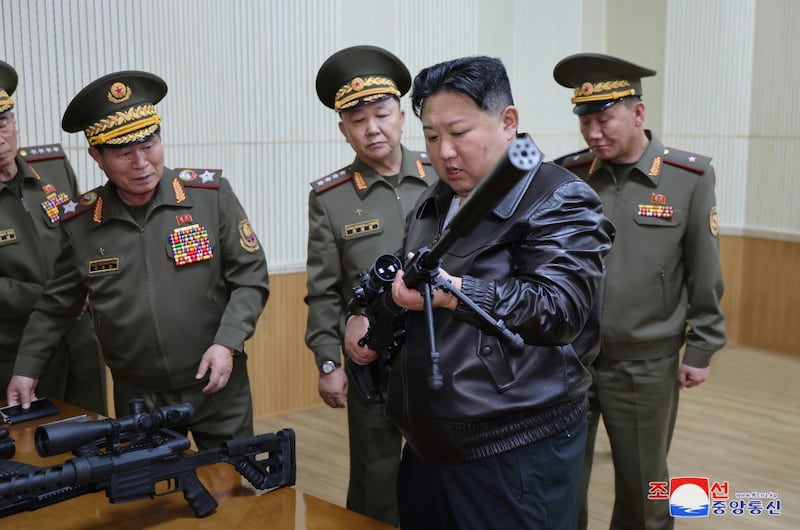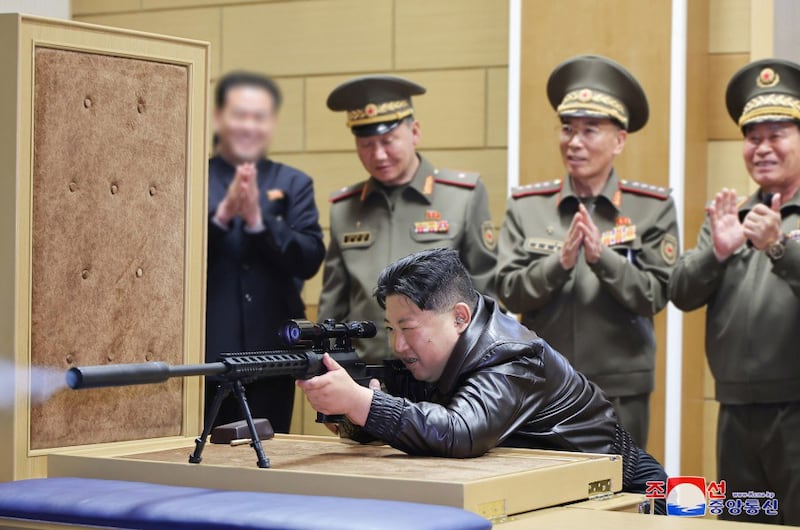North Korean state media released photos showing leader Kim Jong Un firing a sniper rifle, but experts pointed out that he held the gun incorrectly and doubted he hit the paper target dead center five times like one picture seemed to indicate.
The photos were taken during Kim’s visit to an unspecified “defense industry enterprise” last weekend, the state-run Korean Central News Agency reported Monday.
Kim said the rifle’s performance was world-class, according to the KCNA piece.
“The modernization of the production process of defense industry enterprises is working at an even higher-level each day,” he raved.
The photos were likely intended to enhance Kim’s image by implying he is a sharpshooter.

As part of the propaganda surrounding his personality cult, one North Korean book declared that Kim was shooting when he was 3 years old, and by age 9, he satisfied his father, Kim Jong-il, by hitting 10 targets within 3 seconds.
But a military expert was quick to point out that his posture and grip in the photos was entirely wrong.
“Anyone who has been trained to shoot will know that it is false that Chairman Kim’s five shots hit the target,” Lee Il-woo, secretary-general of the South Korea-based Korea Defense Network, said in a phone call with RFA Korean.

Sniper rifles have a stronger recoil than other types of guns, and require a particular grip. If Kim had shot the rifle with the grip in the photo, the recoil would have driven the barrel sharply upward, causing him to miss the target, according to Lee.
“Even at close range, if you shoot like that, the gun bounces upward,” said Lee. “I definitely think he held the gun incorrectly and I don’t think he ever received sniper training.”
Low resolution
Of the 29 photos released by KCNA, 11 were partially blurred to conceal either people’s faces or equipment.
The photos as provided by the North Korean government were of low resolution, preventing further detailed examination for RFA to independently verify if they had also been digitally manipulated beyond the blurring of faces.

The blurring was apparently done to avoid sanctions, Jeffrey Lewis, a professor at the East Asia Nonproliferation Project at the Middlebury Institute of International Studies said on X.
“Someone doesn't want us to identify his imported Chinese robot arms,” he posted on X, implying that weapons or equipment were likely imported from China.
Lee said the blurred faces are a precaution so that sanctions are not brought up against specific people.
“Sanctions are imposed after identifying the personal information of people in North Korea’s Second Economic Committee and the Ministry of Munitions Industry,” he said.
“These people have to travel back and forth overseas to open accounts and conduct transactions because they need to procure parts and other technologies,” he said. “That would become difficult if they were identified.”
Translated by Claire S. Lee. Edited by Eugene Whong and Malcolm Foster.
